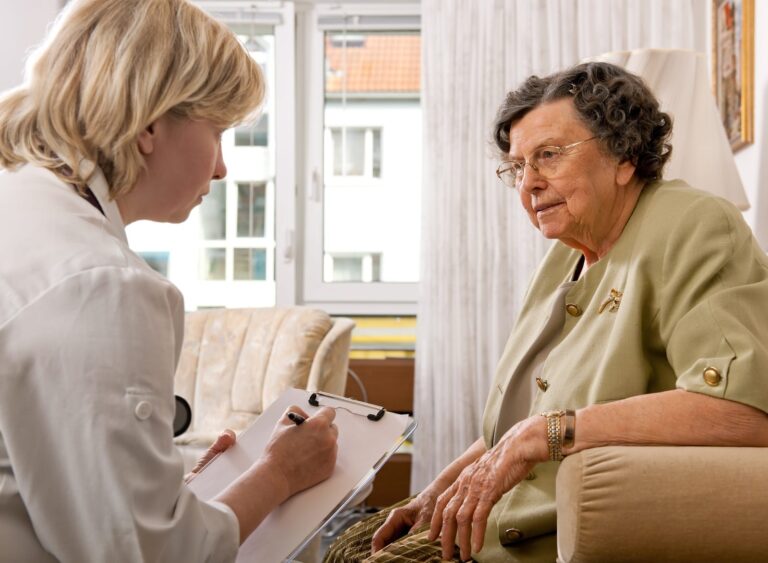According to the Alzheimer’s Association’s 2016 Alzheimer’s Disease Facts and Figures, every 66 seconds someone in the country develops Alzheimer’s disease, which is the sixth leading cause of death. Alzheimer’s disease, the most common form of dementia, is a degenerative brain disease with symptoms that gradually worsen over time.
It’s vital to pay attention to the warning signs of Alzheimer’s disease in aging loved ones. While momentary lapses in memory are normal among seniors, some of the common Alzheimer’s symptoms include more disruptive memory loss, such as struggling to complete daily tasks or effectively communicate, confusion with vision, time and/or place, misplacing objects and being unable to retrace steps to find them.
Why Early Diagnosis of Alzheimer’s is Key
If you think your loved one is displaying any of the warning signs for Alzheimer’s disease, don’t hesitate to get a proper diagnosis. Recent studies have shown that an early Alzheimer’s diagnosis can lead to treatment or therapies that can help slow or even stop the progression of the disease. Some of the advantages early diagnosis provides are:
- Possibly reversing or properly treating symptoms. Early diagnosis of Alzheimer’s allows your loved one to explore different treatment options that can alleviate some of the symptoms, ultimately leading to more independence for a longer length of time. If the diagnosis proves not to be Alzheimer’s, treatment of some of the reversible conditions help improve brain function and reduce symptoms.
- Allows time for planning for the future. Early diagnosis provides an opportunity to make plans for your loved one’s future healthcare needs. It can also prevent your loved one from making choices that could be detrimental, like moving away from family or friends.
- Empower loved ones to participate in decisions. Likewise, your loved one will have a voice in some of the decisions made regarding his or her long-term care options, as well as in financial and legal matters. It’s much easier on family caregivers when loved ones’ wishes are made known in advance.
- Receive the care and support you and your loved one need. Getting the proper care and finding supportive services will allow improve quality of life for all those involved. Joining a support group early on provides an opportunity for learning strategies for dealing with the Alzheimer’s diagnosis and coping with the symptoms.
- Advocate for more research. You will not only learn more about the disease, but your loved one can also take part in clinical trials and advocate for more advances in research. Clinical trials also help empower your loved one, allowing them to feel like they are making a change, both for their own care and the future care for their children and grandchildren.
Studies show that an accurate Alzheimer’s diagnosis is more easily possible when a complete history can be taken early on, while your loved one is still able to communicate effectively, answering questions and voicing concerns. Once the brain has been more affected by the disease, a proper diagnosis can become difficult.
For more information about Memory Care and Memory Care Assisted Living offered at American Senior Communities, please visit www.ASCSeniorCare.com/service/memory-care-assisted-living/.




